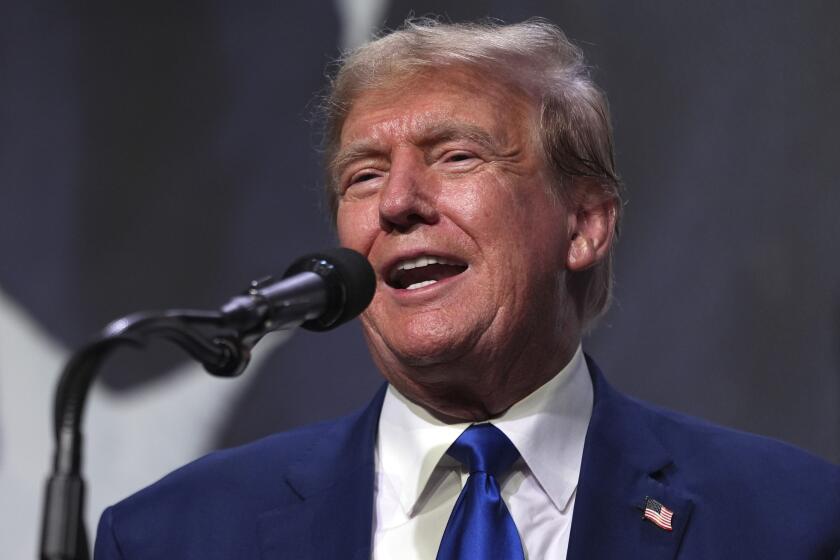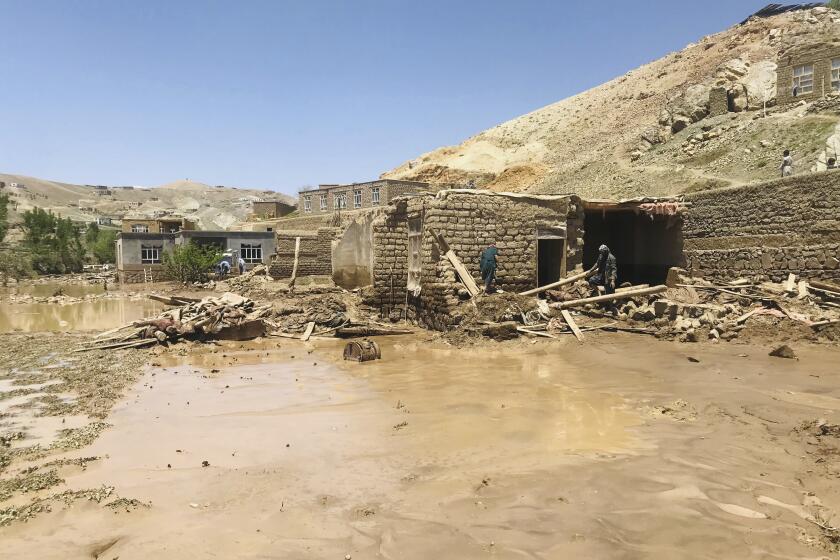Officials Put Brazil’s Inflation Rate at 800% for Second Month in a Row
For the second month in a row, Brazilian inflation is raging at a record annual rate of more than 800%, according to official estimates. President Jose Sarney said Wednesday that the problem of inflation is “almost unbearable.”
It is the most obvious symptom of a persistent economic crisis that has also sapped Brazil’s foreign currency reserves and interrupted debt payments to banks. But there was one bit of good news this week: Brazilian trade in April produced a $520-million surplus, the largest since October.
According to the official National Consumer Price Index, inflation in April was 20.96%, the highest ever in Brazil. Because of compounding, if that rate were maintained for a full year, that year’s inflation would be about 847%. The previous monthly record was January’s 16.82%.
Fernando Milliet, president of the Central Bank, said Tuesday that inflation in May will be about 22%, another record.
Pay increases have lagged behind price increases and the purchasing power of salaries has declined. A study by labor movement economists calculated that the average worker’s real wages declined by 24% between August and February.
The figures published Wednesday also showed a drop of 17.8% in Rio de Janeiro’s retail sales in April, compared to April of 1986.
Discontent among workers and business executives has increased the pressure on Sarney’s 2-year-old civilian government. The president told reporters Wednesday, “The problem of our inflation is a serious problem, almost unbearable, and we have to struggle against it.”
Inflation began to surge in December as the government dismantled a price-freeze program. Economic distortion caused by the freeze had reduced Brazil’s trade surplus from about $1 billion a month to less than $200 million. Foreign currency reserves dwindled, and officials admitted that the country could not keep up payments on its $110-billion foreign debt.
In February, Sarney announced the suspension of interest payments on about $70 billion in loans from private foreign banks. He said then that Brazil’s foreign reserves were down to $3.96 billion from about $5.6 billion in October.
The newsmagazine Veja said this week that the reserves have dropped further, to $1.5 billion.
Officials have made it clear that for Brazil to lift its debt moratorium, it needs to increase its trade surplus and foreign reserves. And officials this week pointed to a $520-million trade surplus in April as a turning point in that direction.
“We have reached the bottom of the well and now we are starting a movement of recuperation,” said Namir Salek, director of foreign trade for the government-owned Bank of Brazil.
Luiz Carlos Bresser Pereira, finance minister since late April, is preparing a new economic plan that is expected to serve as a basis for renegotiating the debt with foreign banks.
In an interview published Wednesday in the newspaper O Estado de Sao Paulo, Bresser said the plan will be ready about June 20. He said it will be presented to the International Monetary Fund, which he hopes will smooth the way for negotiating with the banks and “lifting the moratorium as soon as possible.”
More to Read
Start your day right
Sign up for Essential California for news, features and recommendations from the L.A. Times and beyond in your inbox six days a week.
You may occasionally receive promotional content from the Los Angeles Times.






